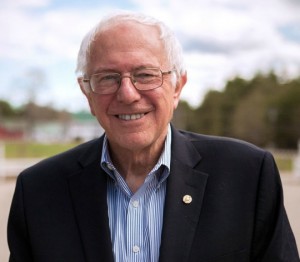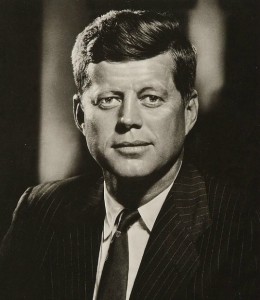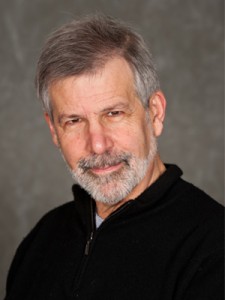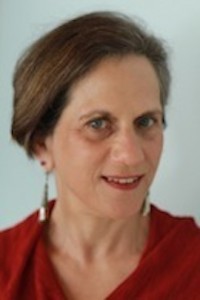
Bernie Sanders has been called “elderly.”
I don’t think so.
I was enjoying Michael Kazin’s New York Times Magazine column about the term “populist” in American political history, a term that this election cycle has been applied to both Donald Trump and Bernie Sanders. I love language and history, so I was enjoying Kazin’s romp through presidential contests, which has tagged such diverse politicians as George Wallace and George McGovern as populists. But my enjoyment came to an abrupt halt three quarters of the way through the article. I was brought up short by Kazin’s characterization of Sanders as an “elderly Jew.”
Elderly?
Sanders is seventy-four years old; if elected, he’ll be seventy-five and a third on Inauguration Day. Donald Trump would be seventy and a half; Hillary Clinton, just over sixty-nine; Kasich, sixty-four and a half; and Cruz just over forty-six.
Unquestionably, Sanders is the eldest of all the candidates, and the oldest ever elected, just behind Ronald Reagan, who was two weeks shy of seventy-four the second time he took office in 1985. So there’s no question: Sanders is at the upper end of the spectrum for American presidents.

But to date, the four American presidents who have died of natural causes while in office were in their sixties: William Henry Harrison (68), Zachary Taylor (66); Warren Harding, (67); Franklin D. Roosevelt (63). And then there’s Woodrow Wilson, who became incapacitated at age 63 and nevertheless served out the last two years of his second term. Not an ideal situation, but the country survived and didn’t ratify the Twenty-fifth Amendment, clarifying succession in the event a president dies or becomes disabled, until 1967, four years after John F. Kennedy was assassinated. For the record, JFK was the youngest person ever elected to the presidency and the youngest at the time of his death. Theodore Roosevelt, however, was the youngest person to ever serve as president, taking over after the assassination of William McKinley.
***
“Elderly is defined variously as “being past middle age; approaching old age,” and “individuals over 65 who have functional impairments.” Michael Kazin, the author of the article, will turn sixty-eight in June.

Gerontology, the scientific study of aging, measures aging by assessing an elder’s ability to perform the Activities of Daily Living (ADLs) and the Instrumental Activities of Daily Living (IADLs). ADLs are the tasks required to get up and go: walking, bathing, dressing, toileting tooth brushing and eating. IADLs are what a person does once they’re up and about, including cooking, driving, using the telephone or computer, shopping, keeping track of finances and managing medication.
As with all stages of human development, it’s functionality rather than age that most accurately defines whether a person has graduated from toddler to preschooler, or teen to young adult. And in our current era of unprecedented longevity, the threshold for being middle aged has been creeping upward as our elders maintain not just their ability to perform the basics, like ADLs and IADLs, but perform other, more challenging tasks, like serving in the US Senate and campaigning for president.
I’m younger than Sanders, Trump, Clinton and Kasich, and I doubt very much I could keep up their pace. Furthermore, being president of the United States is a grueling job that requires the knowledge, character and wisdom that is often only (but not necessarily) acquired with age.
There are cultures that revere their elders; ours is not one. Ours is a youth-obsessed culture that typically attempts to deny aging and defy death, which is the only way I can account for the almost sixty-eight year old Michael Kazin calling the not-yet seventy-five year old Sanders “elderly.”
He’s not.

Deborah Lee Luskin is the award-winning author of Into the Wilderness, a love story between people in their mid-sixties, set in Vermont during the Goldwater – Johnson presidential campaign in 1964.
To receive new posts by email every Wednesday, enter your address in the box on the right, click “subscribe” and then check your email to confirm your subscription. Thanks.
Dear Deborah Luskin — Sorry my use of “elderly” impaired your enjoyment of my article in the NYT Magazine. But I was just using the term as the dictionary defines it:
“Being past middle age and approaching old age; rather old.
2. Of, relating to, or characteristic of older persons or life in later years”
Guess I’m elderly too!
Hi Michael,
Language changes faster than dictionary definitions, and as people live longer, healthier lives, it seems as if the upper limit of what’s middle age creeps up. Or is it just that as I get older I keep pushing the “e-word” further into the future? As one on the cusp myself, I’d much rather define stages of life by our functionality rather than by our chronological age. Goodness knows, we can find both immaturity and wisdom across the spectrum.
But I think it was the characterization of Sanders as an “elderly Jew” that really brought me up short. In my world – I’m a second-generation American descended from Eastern European Jews who settled in Brooklyn – that’s a potent description bordering on stereotype.
I don’t usually write overtly about politics, but this election cycle seems exceptional, so I made an exception. Besides, I needed a hook for my monthly blog, The Middle Ages. Thanks for giving it me – and for this chance to correspond with you.
All best,
Deborah.
Michael, Michael, Michael! I’m impressed that you took the time to reply to this post, but I am relatively certain that anyone who works with words knows better than to suggest that your dictionary-meaning plea (i.e., denotation only) might convince other writers and those who read with their brains engaged.
Most of us with studied liberal arts backgrounds understand that connotation matters more – and can be strategically useful turning black to dirty-white in the mind of the public at large – meaning the VOTING public. (A great example is “right to life” — except for that of the life with tenure, of course – and the victims of clinic bombings).
If, in fact, your attempt at swaying perception was truly unintentional, your ageism bias is showing and Luskin called you out on it. Oops!
More circumspect than I, she let you slide completely concerning the noun with which your unfortunate modifier was paired until her reply to your comment. Since so many people fail to read them, your populist reputation is less sullied than it might be otherwise.
xx,
mgh
(Madelyn Griffith-Haynie – ADDandSoMuchMore dot com)
– ADD Coach Training Field founder; ADD Coaching co-founder –
“It takes a village to transform a world!”
Thanks for adding to the conversation here. Hope MK sees it. DLL